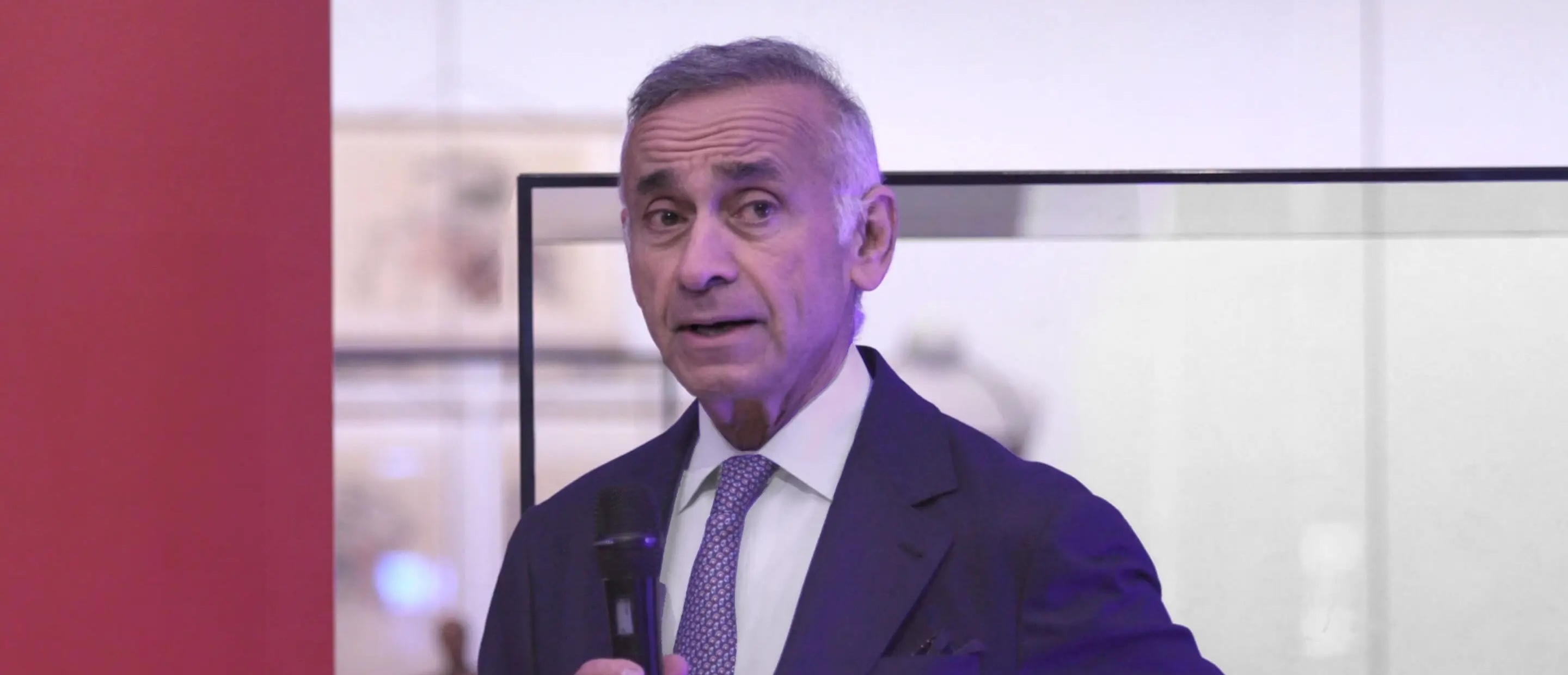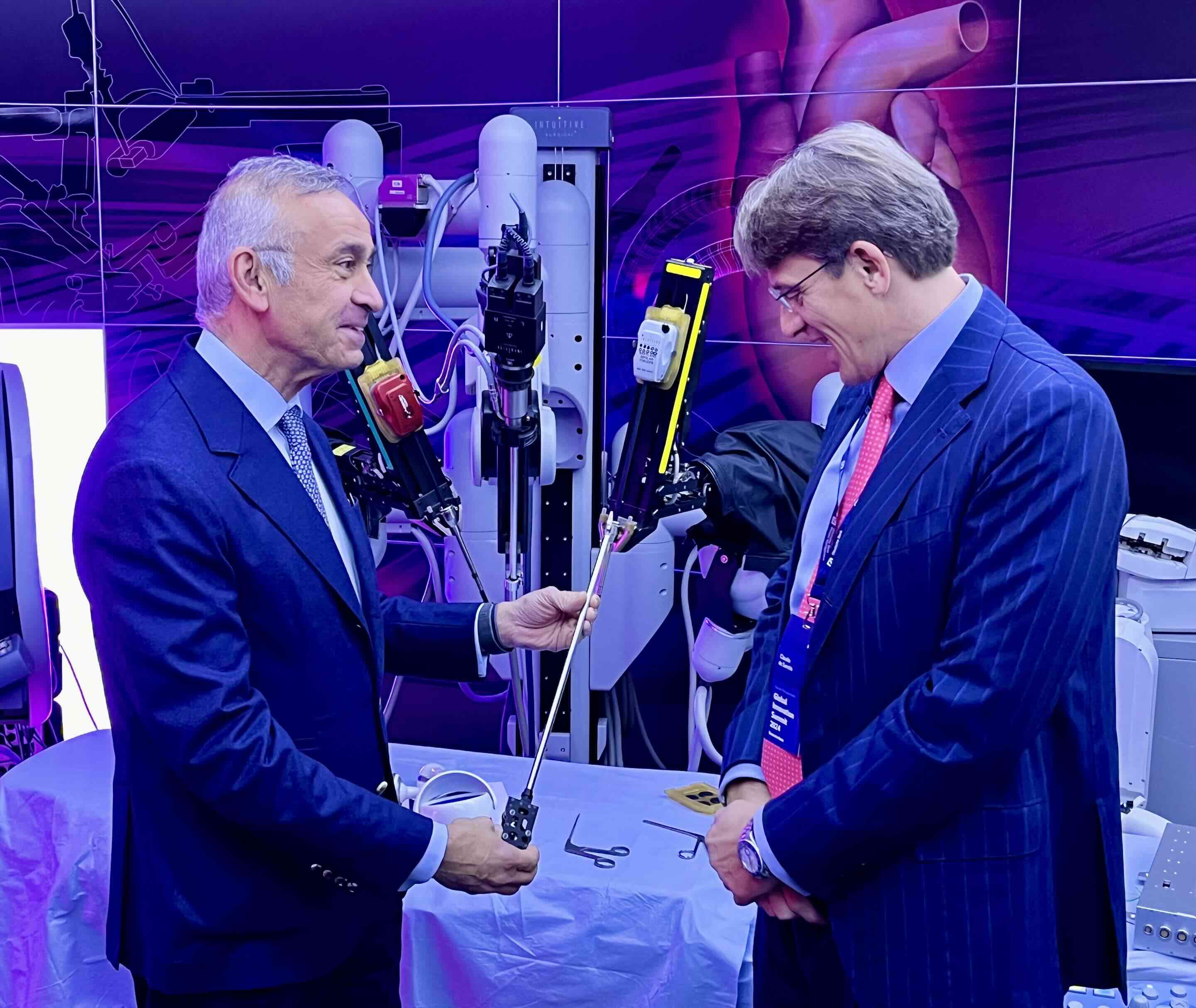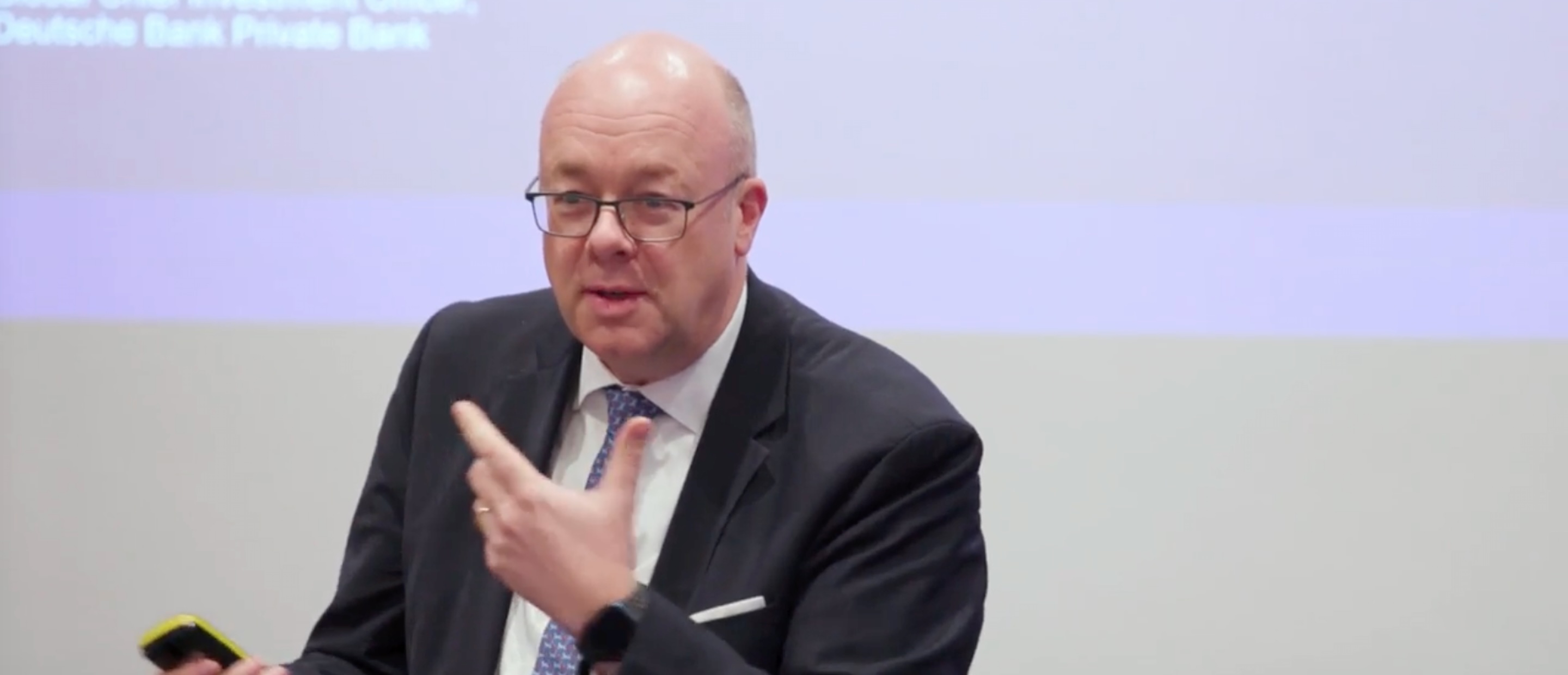
In conversation with Professor Lord Ara Darzi
Our fireside chat with Lord Darzi covered national health system challenges, anti-microbial resistance and the importance of leveraging new technology
Our Global Innovation Summit for 2024 was opened by Claudio de Sanctis, Head of the Private Bank and Member of the Management Board of Deutsche Bank, interviewing Professor Lord Ara Darzi, Paul Hamlyn Chair of Surgery at Imperial College London, the Royal Marsden Hospital and the Institute of Cancer Research, and our host for today’s event.
Darzi is a prominent figure in U.K. healthcare innovation and policy, with over 30 years of experience in the National Health Service (NHS) and a distinguished career in surgery and academia. He recently conducted a review of the NHS in England at the request of the U.K. government and de Sanctis took the opportunity to question him on this, on the threat of anti-microbial resistance (AMR) and on the role of academia in supporting European competitiveness – among many other topics.
Insights from Lord Darzi on today's top healthcare trends
The Darzi Review highlighted several critical issues with the NHS, including long waiting times for children and adolescents, poor access to acute services, and the overall decline in public health prior to the COVID-19 pandemic. At the Global Innovation Summit, he emphasized the need for data-driven approaches to address these challenges and for significant capital investment to improve healthcare infrastructure.
Climate change was also discussed, with Darzi commenting on its growing negative effect on health issues around the world, including mental health problems among adolescents as well as the increased spread of infectious diseases. At the same time, he pointed out, the healthcare sector has a substantial carbon footprint, with the pharmaceutical industry contributing significantly to global emissions.
In discussing the future of healthcare, Darzi highlighted the transformative potential of emerging technologies such as mRNA vaccines, artificial intelligence (AI), and data analytics. He noted that these technologies could revolutionize disease prevention, early detection, and treatment. However, he also emphasized the need for responsible regulation and public engagement to ensure the successful adoption and diffusion of these innovations.
Key takeaways from this session
- In public healthcare systems, data-driven decision making is essential: Darzi underscored the importance of using data to inform healthcare policies and practices, particularly in addressing systemic issues within the NHS.
- Significant capital investment in the NHS is crucial: Major improvements to healthcare infrastructure is necessary to improve service delivery and patient outcomes.
- The healthcare sector must adopt more sustainable practices: The healthcare sector must slash its carbon footprint while also addressing the health impacts of climate change.
- Emerging technologies have transformative potential: Innovations such as mRNA vaccines and AI have the potential to transform healthcare but require responsible regulation and public engagement.






